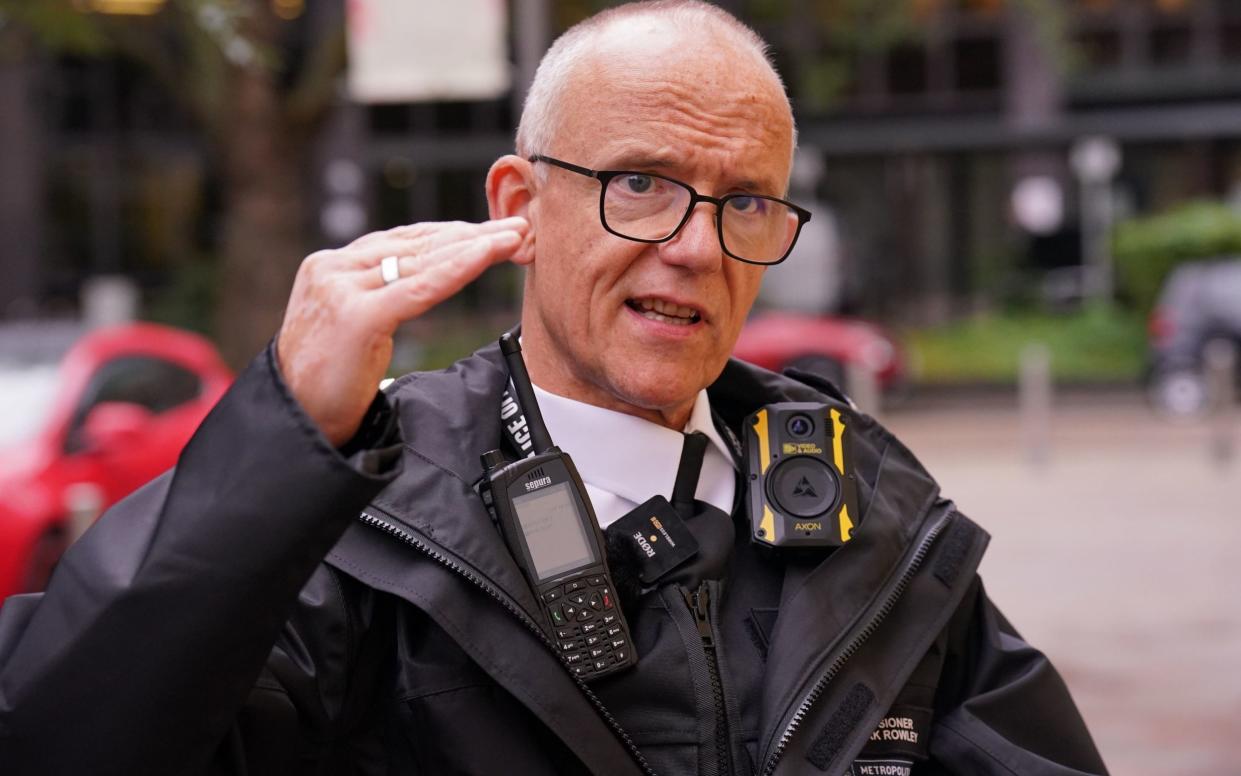Chief Constables must tackle police incompetence to secure public support
Commissioner of the Metropolitan Police, Sir Mark Rowley - Jonathan Brady /PAGetting rid of wrong ‘uns in the police force is now at the top of the agenda for Government and police chiefs alike. The announcement that Chief Constables will chair misconduct hearings for police officers accused of gross misconduct is overdue but very welcome. This is a change from the current quasi-judicial format where lawyers run misconduct hearings; it represents a reversal of what was always an unnecessary and expensive policy, introduced as recently as 2016.Policy Exchange recommended the newly announced changes in our report Policing Can Win as long ago as last summer. Given police chiefs are rightly held to account for the performance and culture in their forces, they should have the final say about the officers and staff that make up those forces.The crisis that has enveloped British policing over recent years has been well documented. The public’s confidence has plummeted. Too often crimes that w


Getting rid of wrong ‘uns in the police force is now at the top of the agenda for Government and police chiefs alike. The announcement that Chief Constables will chair misconduct hearings for police officers accused of gross misconduct is overdue but very welcome. This is a change from the current quasi-judicial format where lawyers run misconduct hearings; it represents a reversal of what was always an unnecessary and expensive policy, introduced as recently as 2016.
Policy Exchange recommended the newly announced changes in our report Policing Can Win as long ago as last summer. Given police chiefs are rightly held to account for the performance and culture in their forces, they should have the final say about the officers and staff that make up those forces.
The crisis that has enveloped British policing over recent years has been well documented. The public’s confidence has plummeted. Too often crimes that would once have led to a robust police response now seem to provoke nothing more than official disinterest. Criminals in uniform have been permitted to go about their nefarious crimes, some apparently unimpeded for years.
No one is any doubt that police officers like the murderer Wayne Couzens or serial rapist David Carrick’s campaign of violence stretching 17 years underscore a pervasive problem of accountability in the force. However, as important as ridding the force of these criminals in uniform is, there is a more pervasive challenge to be confronted – the acceptance of poor and lacklustre performance by far too many in our police forces.
Everyone in policing has come across these individuals - the officer that avoids attending calls for help from domestic abuse victims; the detective who doesn’t bother pursuing obvious lines of inquiry; the line manager that fails to review their team’s work. Too often poor performers are simply moved from one department to another – it being far easier to move a problem officer or staff member than to actually deal with an incompetent individual. The public, and indeed the majority of hard-working officers themselves, are being let down by those few in policing’s ranks.
This issue is not simply confined to junior staff. Following on from the review by Baroness Casey published earlier this year, which found examples of racist, homophobic and misogynistic behaviour within the Met, it is astonishing that there are still senior managers who had a role in overseeing the catastrophe. On this, the Met Commissioner should be setting an example and showing those people the door.
Yet it is vanishingly rare for poor performers to be taken to task or sacked. It is time that Chief Constables dealt with these individuals – they are a drain on their colleagues, on their forces and on the public’s confidence in policing.
There are of course many officers who exemplify all that policing and public service should be. Only this week an officer died having sustained the most terrible injuries whilst desperately trying to save a man in distress. The officer’s sacrifice should never be forgotten.
The law-abiding majority want to be on the police’s side. In raising the standard the focus must be on creating police forces which are relentlessly focused on protecting the public and fighting crime. It must not, and must never be, about officers having to meet some obscure code or becoming victim to some kind of political witch-hunt. The hard-working crime-fighter must not be penalised for apparently failing to meet the latest ideological purity test.
If the cratering of the public’s confidence in our police forces is to be reversed, then an essential component will be Chief Constables dealing with those who repeatedly fail to meet these simple expectations – that police officers and staff should be honest, hard-working and competent. For the officers and staff who are unable or unwilling to clear that bar, whatever their seniority or position, Chief Constables need to declare that their time is up.
David Spencer is head of crime and justice at Policy Exchange and a former Detective Chief Inspector in the Metropolitan Police
What's Your Reaction?






















